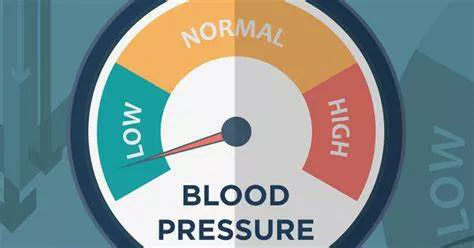Athletes often exhibit lower blood pressure levels compared to the general population, leading to the question: why do athletes have low blood pressure? This phenomenon is multifaceted, influenced by various physiological and lifestyle factors that contribute to maintaining optimal cardiovascular health in athletes. Understanding the mechanisms behind this can offer insights into cardiovascular adaptations to physical activity and potential benefits for overall health.
Why Do Athletes Have Low Blood Pressure?
Physiological Adaptations
One of the primary reasons for low blood pressure in athletes is the cardiovascular adaptations induced by regular exercise.
Endurance training, in particular, leads to significant improvements in cardiac output, heart rate, and vascular function.
Athletes develop a more efficient heart that can pump more blood with each beat, resulting in lower resting heart rates.
This increased efficiency reduces the workload on the heart, contributing to lower blood pressure levels.
see also:What Are The Causes & Symptoms of White Wolf Syndrome
Vascular Health
Regular physical activity promotes vascular health by enhancing the function and structure of blood vessels. Athletes often have more elastic and compliant arteries, allowing for better blood flow and lower resistance to blood flow. The dilation of blood vessels during exercise, known as vasodilation, also contributes to lower blood pressure by improving blood flow and reducing peripheral resistance.
Body Composition
Athletes typically have a leaner body composition with lower body fat percentages. Excess body fat is associated with increased blood pressure due to the higher metabolic demands on the cardiovascular system. By maintaining a healthy weight and body composition, athletes reduce the strain on their hearts and help regulate blood pressure within optimal ranges.
Hormonal Balance
Regular exercise influences hormone levels in the body, including hormones that regulate blood pressure such as adrenaline, cortisol, and aldosterone. Athletes often have well-balanced hormonal profiles, with lower levels of stress hormones and increased production of vasodilators like nitric oxide. This hormonal balance contributes to lower blood pressure and improved cardiovascular function.
Dietary Factors
The dietary habits of athletes also play a role in maintaining low blood pressure. Diets rich in fruits, vegetables, lean proteins, and whole grains provide essential nutrients that support cardiovascular health. These nutrient-dense foods help control blood pressure by reducing inflammation, oxidative stress, and cholesterol levels, all of which are risk factors for hypertension.
Hydration Status
Proper hydration is crucial for maintaining optimal blood pressure levels, especially during intense physical activity.
Athletes are generally more conscious of their fluid intake and hydration status, which helps prevent dehydration-related changes in blood pressure. Adequate hydration supports blood volume and circulation, contributing to stable blood pressure readings.
Stress Management
Regular exercise is a natural stress reliever and helps athletes manage stress more effectively. Chronic stress is a significant contributor to high blood pressure, so the ability to cope with stressors can impact blood pressure levels. Athletes often incorporate relaxation techniques, mindfulness practices, and adequate rest into their routines, all of which contribute to lower stress levels and healthier blood pressure.
Genetic Factors
While lifestyle factors heavily influence blood pressure in athletes, genetic predispositions also play a role. Some individuals may have naturally lower blood pressure due to their genetic makeup, making them more inclined to excel in athletic pursuits. Genetic variations in blood pressure-regulating genes can contribute to differences in blood pressure among athletes.
Conclusion
The low blood pressure observed in athletes is a result of complex interactions between physiological adaptations, lifestyle factors, dietary habits, hydration status, stress management, and genetic influences. Regular exercise and a healthy lifestyle are key components of maintaining optimal blood pressure levels. Athletes serve as examples of how physical activity and proper care of the body can lead to significant cardiovascular benefits, highlighting the importance of incorporating exercise into daily routines for overall health and well-being.

